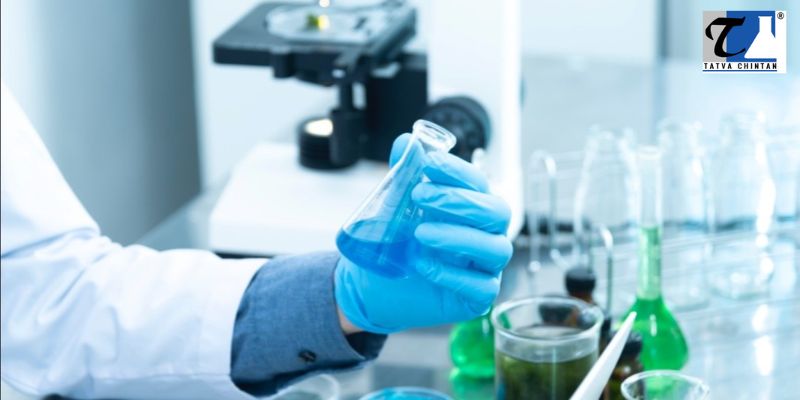Cetyl Pyridinium Chloride: The Multi-Purpose Chemical for Infection Prevention and More
Cetyl Pyridinium is a quaternary ammonium known as Cetyl Pyridinium Chloride in its salt form. It is commonly used as an active ingredient in nasal sprays, breath sprays, throat sprays, lozenges, toothpaste, and mouthwashes. When used in these products, it mediates antiseptic properties and protects against infections like dental plaque.
How Cetyl Pyridinium Chloride Can Help in Infection Prevention
Cetyl Pyridinium Chloride (CPC) is used in several over-the-counter care products. It is used as a pharmaceutical preservative and in topical anti-infective products. CPC helps in reducing gingivitis. Below are different ways through which CPC helps in infection prevention:
1. Disruption of microbial cell membranes
Additionally, disruption of microbial cell membranes by CPC results in increased permeability and leakage of cellular contents. By targeting the cell membranes of bacteria, fungi, and viruses, CPC effectively prevents their growth, proliferation, and colonization, reducing the risk of infections.
2. Inhibition of bacteria growth
CPC can interfere with bacterial enzymes and metabolic processes, leading to the suppression of bacterial proliferation. This antimicrobial action helps prevent infections caused by bacteria. This happens as it also disrupts the cell membranes of bacteria. This interaction leads to the leakage of cellular contents and compromises their structural integrity.
CPC causes significant disturbance to crucial cellular processes, impeding bacterial growth. Moreover, it disrupts bacterial enzymes and metabolic pathways, intensifying the hindrance to bacterial proliferation. By interacting with bacterial physiology, CPC effectively suppresses bacterial growth, lowering the risk of bacterial infections.
3. Reduction of plaque and gingivitis
CPC's capacity to diminish plaque and gingivitis has led to its widespread inclusion in oral hygiene products. CPC disrupts their cell membranes by targeting the bacteria accountable for plaque buildup and gum inflammation, thereby impeding their growth and diminishing their capacity to form biofilms.
By controlling bacterial populations and inhibiting plaque accumulation, CPC helps prevent the development of oral infections. Furthermore, by reducing gingivitis, CPC helps to maintain healthy gum tissues, which act as a barrier against oral pathogens.
4. Broad-spectrum antimicrobial activity
One of the significant advantages of CPC is its broad-spectrum antimicrobial activity. This makes it effective in preventing infection caused by various microorganisms, including gram-positive and gram-negative bacteria, yeast, fungi, and some enveloped viruses.
The capability of CPC to disrupt the cell membranes of these microorganisms is the mechanism underlying its broad-spectrum activity. CPC effectively prevents growth and eliminates these pathogens by interfering with the functioning of the lipid bilayer.
As a result of the broad spectrum antimicrobial activity of the CPC, it can provide an effective approach to infection prevention in various settings, including oral hygiene and surface disinfection, as well as the care of wounds.
Other Applications of Cetyl Pyridinium Chloride
Other than in preventing infections, there are other emerging applications of CPC. Some of these applications include the following:
1. Antimicrobial coatings
CPC is being explored to develop antimicrobial coatings for medical devices, surfaces, and textiles. Incorporating CPC into these materials makes it possible to create surfaces that actively inhibit the growth of microorganisms, reducing the risk of infections.
2. Biofilm control
Biofilms are complex communities of microorganisms that can form on various surfaces, causing persistent infections. CPC has demonstrated effectiveness in controlling biofilm formation and disrupting existing biofilms. This property is valuable in healthcare settings, industrial processes, and water treatment systems.
3. Food preservation
CPC is being investigated for its potential use in food preservation. Its antimicrobial properties can help inhibit the growth of spoilage-causing microorganisms and foodborne pathogens, extending the shelf life and ensuring the safety of food products.
4. Agricultural applications
CPC is being explored for agricultural applications, such as crop protection and post-harvest preservation. Its antimicrobial properties can help control plant diseases caused by bacteria, fungi, and other pathogens, reducing the need for traditional chemical pesticides.
Safety Considerations in Using Cetyl Pyridinium Chloride
While Cetyl Pyridinium Chloride is generally considered safe when used as directed, following the recommended guidelines and precautions is important. In some individuals, it may cause temporary teeth, tongue, or oral tissue discoloration. Additionally, excessive or prolonged use of CPC-containing products may disrupt the natural balance of oral microflora.
When using CPC for infection prevention, it is important to consider certain safety considerations.
1. Follow recommended usage: It is important to adhere to the recommended guidelines and instructions provided by the product manufacturer. Use CPC-containing products as directed, and do not exceed the recommended dosage or frequency of use.
2. Oral discoloration: Prolonged or excessive use of CPC-containing oral hygiene products may lead to temporary discoloration of teeth, tongue, or oral tissues. This discoloration is typically harmless and can be minimized by following proper usage instructions.
3. Disruption of oral microflora: While CPC effectively reduces oral pathogens, it may also disrupt the natural balance of oral microflora. This disruption could affect overall oral health. Therefore, it is recommended to use CPC-containing oral care products in moderation and maintain a balanced oral hygiene routine.
Allergies and sensitivities: Some individuals may be allergic or sensitive to CPC. If you experience any adverse reactions, such as skin irritation, rash, or difficulty breathing, stop using it and consult a healthcare professional.
Conclusion
Cetyl Pyridinium Chloride is a versatile chemical compound widely used for infection prevention. Its ability to disrupt microbial cell membranes, inhibit bacterial growth, reduce plaque and gingivitis, and exhibit broad-spectrum antimicrobial activity makes it a valuable tool in various applications. However, following recommended usage and considering safety precautions for using CPC in infection prevention strategies is important.






Comments
Post a Comment